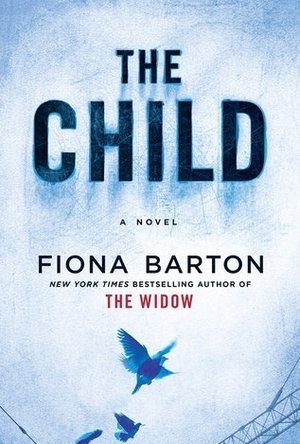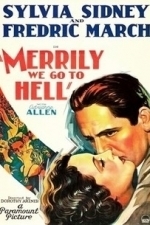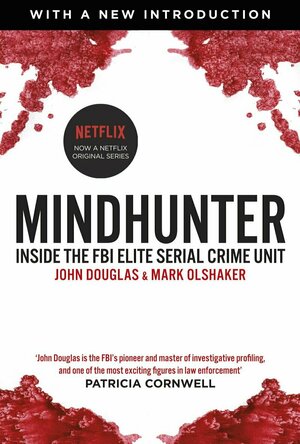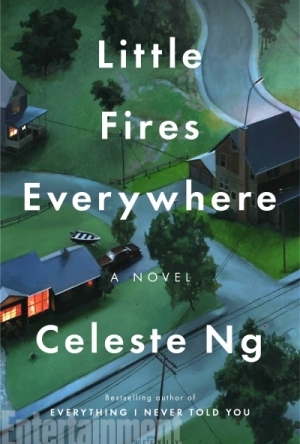Search
Gamer bunnz (4 KP) rated New Amsterdam in TV
May 22, 2019
Bring the tissues
Contains spoilers, click to show
I watched the whole first series in about two weeks, at first I thought it was going to be another grey anatomy where we see drama, love lost and betrayal, we do see some of these but in a more subtle way, the main focus in on max and how he can turn things around for new Amsterdam and put the patience’s first not money which is how it should be, whilst trying to mix things up max starts to battle a personal health issues and save his marriage after he promised to settle down and give up such a demanding job to help bring up his unborn baby girl. We see max make changes to the hospital that not everyone agrees with but he pushes for it anyways and we watch him slowly begin to lose his fight with throat cancer but still battles on. All the actors/actress bring there own style to the show and you can’t help but full in love with them, unlike other tv series there wasn’t a character I didn’t like, I enjoy watching their own stories unfold along with max’s And when things happened to them I felt all the emotions that went along with it, I laugh, I cried(quite a bit) I got anger at things that happened and felt sad when I was down the final two episodes I was sad it was ending but the final episode didn’t disappoint it left me hoping a second season will be made and all the characters return for it but with the cliff hanger we was left on, I am unsure if all will be returning if they make a second. All in all the series was surprising and different from other medical program there wasn’t to many Far-fetched medical scenes or silly medical terms that don’t get used in real life,don’t get me wrong there was some but it wasn’t t litter with it, I would recommend this to anyone looking for something more than just another modern day ER, who doesn’t have time to watch the multi seasons of grey anatomy, it different in its own right and it Will certainly take you on a emotional rollercoaster.
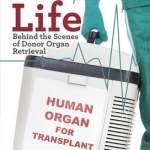
The Gift of Life: Behind the Scenes of Donor Organ Retrieval
Book
'Organ transplants are a very controversial and unique area of medicine. Those of us who work as...
As a worker tears apart an old house under construction in London, he makes an unsettling discovery: tiny bones. The police believe they belong to a baby who was buried years earlier. The story catches the eye of journalist Kate Waters, who immediately wants to determine the child's identity. Her research leads her to a missing child from several decades in the past: a stolen baby, who was never found. Kate finds herself drawn into the missing baby's case and the lives of several women: Angela, a mother who had her baby stolen many years ago; Emma, who once lived on the block where the baby's bones were found; and Jude, Emma's mother.
I really enjoyed Barton's previous novel, The Widow, and I have to say that THE CHILD did not disappoint. It's hard exactly to describe her books, but they have some sort of power over you, drawing you into their narrative and making it difficult to come back to reality until you've reached the end. Much like THE WIDOW, we're presented with a cast of disparate characters-not all of whom are particularly likeable. I hadn't realized, for some reason, that THE CHILD would feature Kate again--a journalist we previously met in Barton's earlier book. I found Kate a much more engaging protagonist this time around: she came across as more human and flawed.
Otherwise, the novel focuses on timid, depressed Emma and her difficult relationship with her mother, Jude, who kicked Emma out of the house at the sixteen. Each woman has a turn at the narration, as does Angela, who is still reeling from having her baby stolen from the hospital (and never found). Barton does a skillful job weaving their stories together. Everything unfolds in bits and pieces as the tale progresses in the eyes of each of our narrators. For me, it was extremely riveting: just as one shocking piece came out, another one would fall into place.
Barton also gives us an excellent look into the journalism business, with a focus on how Kate writes her stories, with a strong emphasis on real (face-to-face, non-Internet-based) research. We see firsthand how the current social media craze is affecting the newspaper world. It's refreshing, as we get to basically see a crime/story solved, yet not necessarily through the lens of a typical police drama.
Overall, I really enjoyed this one. I figured out parts of it as it went along, but found it to be a very compelling read. Definitely worth picking up.
I really enjoyed Barton's previous novel, The Widow, and I have to say that THE CHILD did not disappoint. It's hard exactly to describe her books, but they have some sort of power over you, drawing you into their narrative and making it difficult to come back to reality until you've reached the end. Much like THE WIDOW, we're presented with a cast of disparate characters-not all of whom are particularly likeable. I hadn't realized, for some reason, that THE CHILD would feature Kate again--a journalist we previously met in Barton's earlier book. I found Kate a much more engaging protagonist this time around: she came across as more human and flawed.
Otherwise, the novel focuses on timid, depressed Emma and her difficult relationship with her mother, Jude, who kicked Emma out of the house at the sixteen. Each woman has a turn at the narration, as does Angela, who is still reeling from having her baby stolen from the hospital (and never found). Barton does a skillful job weaving their stories together. Everything unfolds in bits and pieces as the tale progresses in the eyes of each of our narrators. For me, it was extremely riveting: just as one shocking piece came out, another one would fall into place.
Barton also gives us an excellent look into the journalism business, with a focus on how Kate writes her stories, with a strong emphasis on real (face-to-face, non-Internet-based) research. We see firsthand how the current social media craze is affecting the newspaper world. It's refreshing, as we get to basically see a crime/story solved, yet not necessarily through the lens of a typical police drama.
Overall, I really enjoyed this one. I figured out parts of it as it went along, but found it to be a very compelling read. Definitely worth picking up.
Dianne Robbins (1738 KP) rated Zoey's Extraordinary Playlist in TV
Apr 22, 2021 (Updated Apr 22, 2021)
The first season (4 more)
Song choices
Incorporation of songs into emotional scenes
Singing
Choreography
The First Season broke my heart.
Contains spoilers, click to show
The premise of the show is intriguing. Zoey goes to the hospital for an MRI of her brain and is given a pair of headphones to wear during the test since it is a bit noisy. The MRI technician says they have practically every song known to man downloaded on their system so she can play whatever music she wants. There is a power outage followed by a power surge and all the music that had been downloaded on the hospital's MRI machine gets transferred to her brain. The next morning, she awakens to music in her brain that she just can't shut off. She discovers that she can hear the songs people are singing inside their heads and hearts, hereafter known as heart songs, even though they aren't singing out loud and have no idea that anyone can hear them (or know what they're thinking by what song they've chosen.) Her newfound superpower causes complications in some ways but also helps her interpersonal relationships in other ways. Getting to know what's in people's hearts benefits her greatly with her father who is suffering from a rare neurological disorder that has rendered him speechless and unable to move or communicate. The superpower is her curse and her gift.
I love this show. It's sweet, heartfelt, exciting, funny, and evocative. It will make you laugh, it will make you cry, and it will make you sing along. Mary Steenburgen singing The Bee-Gee's How Can You Mend a Broken Heart will break your heart. Peter Gallagher's performance is understated and beautiful and believable. The relationship between him and Jane Levy's Zoey character is warm and loving. I'm at a time in my life where the health and mortality of my parents are at the forefront of my mind so the relationship between Zoey and her parents is what I focus on most. However, Zoey, being a single young lady in her late twenties is in the dating world and working in the male-dominated tech world, and those play a large part in the show, as well.
Had the show ended at season one, I would have been all right with that decision as that arc ended so beautifully.
With the second season comes more complications, conflicts, miscommunications, fun, drama, sweetness, and love. I'm still going to watch it but I think the first season was the highlight.
I love this show. It's sweet, heartfelt, exciting, funny, and evocative. It will make you laugh, it will make you cry, and it will make you sing along. Mary Steenburgen singing The Bee-Gee's How Can You Mend a Broken Heart will break your heart. Peter Gallagher's performance is understated and beautiful and believable. The relationship between him and Jane Levy's Zoey character is warm and loving. I'm at a time in my life where the health and mortality of my parents are at the forefront of my mind so the relationship between Zoey and her parents is what I focus on most. However, Zoey, being a single young lady in her late twenties is in the dating world and working in the male-dominated tech world, and those play a large part in the show, as well.
Had the show ended at season one, I would have been all right with that decision as that arc ended so beautifully.
With the second season comes more complications, conflicts, miscommunications, fun, drama, sweetness, and love. I'm still going to watch it but I think the first season was the highlight.
Dianne Robbins (1738 KP) rated Merrily We Go to Hell (1932) in Movies
Sep 3, 2020 (Updated Sep 3, 2020)
Pre-code (4 more)
What's good for the goose is good for the gander.
Skeet Gallagher as Buck, the sidekick
Florence Britton as Charlcie, the female sidekick
Directed by female director Dorothy Arzner
Contains spoilers, click to show
It was an important movie of its time. It is a pre-code movie so it was able to get away with sins such as alcoholism and infidelity of husbands AND wives without making them pay in the end.
Sylvia Sidney plays Joan Prentice, the daughter of the president of Prentice coffee and Fredric March plays Jerry Corbett, a newspaperman who wishes to be a playwright. They meet at a society party where she is trying to ignore the advances of a very handsy older man and he is on the terrace drunk and drinking even more. She somehow finds him charming and he finds her "swell." They make a date to meet up again and romance follows. I mean, allegedly follows though it seems like a huge plot point to me what they see in each other and what kind of substance their relationship has. I've never been a very romantic person but even this seems terribly lacking to me.
Skeets Gallagher plays the sidekick Buck and he's worth his weight in gold. He a drinking buddy and scenes with him often start with the camera panning him tap dancing from behind. He's sweet, sympathetic, charming, and adorable and brings so much life to the role and film. Florence Britton plays the female sidekick to Fredric March's Jerry Corbett and is a bold lady, and kind. She and Buck are so much fun and not sloppy drunk like Corbett. I would much rather watch a movie with the two of them.
Sylvia Sidney, the female protagonist was bold and determined. After her husband cheats on her with his former wife, she goes out to have a little fun, too. She gets tired of her husband's constant drunkenness and leaves him. He seems to come to his senses at the end of the movie and goes to her. Spoiler alert: she is in the hospital having delivered their baby. He didn't know she was pregnant and only learned about the baby after reading the birth announcement in the newspaper. This is a premonition of things to come once the code comes into play as any sin must be paid for with a person's ruin or death. However, it ends on a happy note that their marriage will be better and that they are hopeful for the future.
* Watch for Cary Grant in one of his earliest roles as the male lead in the period drama play towards the end of the film.
Sylvia Sidney plays Joan Prentice, the daughter of the president of Prentice coffee and Fredric March plays Jerry Corbett, a newspaperman who wishes to be a playwright. They meet at a society party where she is trying to ignore the advances of a very handsy older man and he is on the terrace drunk and drinking even more. She somehow finds him charming and he finds her "swell." They make a date to meet up again and romance follows. I mean, allegedly follows though it seems like a huge plot point to me what they see in each other and what kind of substance their relationship has. I've never been a very romantic person but even this seems terribly lacking to me.
Skeets Gallagher plays the sidekick Buck and he's worth his weight in gold. He a drinking buddy and scenes with him often start with the camera panning him tap dancing from behind. He's sweet, sympathetic, charming, and adorable and brings so much life to the role and film. Florence Britton plays the female sidekick to Fredric March's Jerry Corbett and is a bold lady, and kind. She and Buck are so much fun and not sloppy drunk like Corbett. I would much rather watch a movie with the two of them.
Sylvia Sidney, the female protagonist was bold and determined. After her husband cheats on her with his former wife, she goes out to have a little fun, too. She gets tired of her husband's constant drunkenness and leaves him. He seems to come to his senses at the end of the movie and goes to her. Spoiler alert: she is in the hospital having delivered their baby. He didn't know she was pregnant and only learned about the baby after reading the birth announcement in the newspaper. This is a premonition of things to come once the code comes into play as any sin must be paid for with a person's ruin or death. However, it ends on a happy note that their marriage will be better and that they are hopeful for the future.
* Watch for Cary Grant in one of his earliest roles as the male lead in the period drama play towards the end of the film.

Voot TV Shows Movies Cartoons
Entertainment
App
Voot is a mobile-first video on demand platform, part of Viacom18 Digital Ventures, the digital arm...
BookblogbyCari (345 KP) rated Mindhunter: Inside the FBI Elite Serial Crime Unit (Now A Netflix Series) in Books
Mar 10, 2019
Douglas is a show-off
This is hands-down the most action-packed biography I have ever read! And it’s almost the most egotistical and narcissistic sounding biography I have ever read.
In his opening scene in the prologue, Douglas finds himself waking up from a coma in hospital expecting to be tortured by sick criminals, having (almost) single-handily run the FBI’s psychological profiling unit, handling hundreds of cases for several years.
I haven’t had the opportunity to watch the Netflix series based on this book, but I am quite a fan of the Criminal Minds series, so I had an idea of what to expect. However, you need to get 6 chapters in before Douglas starts talking about his work as an FBI profiler. He starts off talking about growing up, his love life, and getting into his career.
Douglas may call himself a profiler, but in my opinion, he is first and foremost a story-teller, with a talent for a drama-filled yarn. And rather than being put off by his constant bragging, I found myself hanging on his every word.
This light and long prelude to the criminal profiling section of the book made the crime details feel all the more gruesome. Some of the predictions made by Douglas about the murderers are barely believable. I mean, how can a crime scene really tell you the age of a murderer or what kind of car he drives?
Unfortunately, Douglas doesn’t offer much explanation into these kinds of things, and the leader is left assuming it’s all down to statistics. And if there’s anywhere the book is let down it would be here, because this would be why readers would pick the book up.
I once read a similar book called The Profiler, by Pat Brown. Brown, however, was a mere spectator to criminal goings on and had no influence whatever on getting criminals brought to justice. Douglas, however, would meet with local police and provide strategies on getting the bad guy, and getting him to confess.
To me, the most crucial chapter was Battle of the Shrinks. It looks at how criminals are dealt with once apprehended. Here Douglas meets with a psychiatrist whose job it was to assess whether criminals can have their sentences shortened and be let off early. This psychiatrist didn’t bother reading police reports to see from an outsider exactly what the criminal had done because he didn’t want to be made biased it and wanted to meet the criminal exactly as they presented himself to him. Douglas was appalled by this attitude and tried to get this over to the psychiatrist, but sadly, to no avail.
In short, this is a very entertaining book, and while it can teach you lot, reading it will never make you as good a profiler as John Douglas himself.
In his opening scene in the prologue, Douglas finds himself waking up from a coma in hospital expecting to be tortured by sick criminals, having (almost) single-handily run the FBI’s psychological profiling unit, handling hundreds of cases for several years.
I haven’t had the opportunity to watch the Netflix series based on this book, but I am quite a fan of the Criminal Minds series, so I had an idea of what to expect. However, you need to get 6 chapters in before Douglas starts talking about his work as an FBI profiler. He starts off talking about growing up, his love life, and getting into his career.
Douglas may call himself a profiler, but in my opinion, he is first and foremost a story-teller, with a talent for a drama-filled yarn. And rather than being put off by his constant bragging, I found myself hanging on his every word.
This light and long prelude to the criminal profiling section of the book made the crime details feel all the more gruesome. Some of the predictions made by Douglas about the murderers are barely believable. I mean, how can a crime scene really tell you the age of a murderer or what kind of car he drives?
Unfortunately, Douglas doesn’t offer much explanation into these kinds of things, and the leader is left assuming it’s all down to statistics. And if there’s anywhere the book is let down it would be here, because this would be why readers would pick the book up.
I once read a similar book called The Profiler, by Pat Brown. Brown, however, was a mere spectator to criminal goings on and had no influence whatever on getting criminals brought to justice. Douglas, however, would meet with local police and provide strategies on getting the bad guy, and getting him to confess.
To me, the most crucial chapter was Battle of the Shrinks. It looks at how criminals are dealt with once apprehended. Here Douglas meets with a psychiatrist whose job it was to assess whether criminals can have their sentences shortened and be let off early. This psychiatrist didn’t bother reading police reports to see from an outsider exactly what the criminal had done because he didn’t want to be made biased it and wanted to meet the criminal exactly as they presented himself to him. Douglas was appalled by this attitude and tried to get this over to the psychiatrist, but sadly, to no avail.
In short, this is a very entertaining book, and while it can teach you lot, reading it will never make you as good a profiler as John Douglas himself.
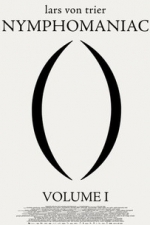
Nymphomaniac Volume I (2014)
Movie Watch
1. "The Compleat Angler" Inspired by a fly fishing hook in the wall behind her and Seligman's love...
Sophia (Bookwyrming Thoughts) (530 KP) rated Tempting Death in Books
Jan 23, 2020
I fully admit I signed up for the blog tour because of the way the synopsis is written it speaks to me! Of course I'm excited! Except there's a big problem: what if I don't like it? What if I hate it, or, or, want to throw it out the window because it was just that terrible?
Hint: I didn't throw it out the window. Holloway's debut novel is one you don't want to bypass simply. A girl nearly gets killed, gets saved and offered a job yet has 48 hours to choose. Add the fact a best friend is marked for murder and time is tick tocking (certainly not slowly) what more could you ask for? The idea oozes awesomeness all around.
BUT... there's just a few things. I feel that Holloway focused more on the plot and the action rather than the character building. I completely get that the fast pace might be an emphasis for how fast time is running out for Libbi. And as much as I just love Libbi Piper as a character and her personality, I don't feel as though I know her. Libbi and I are still strangers there's hardly anything about her past aside from a life of taking care of her brother when her mom is working in a hospital. Her dad just upped and left once upon a time. Well, at least until she was supposedly killed. But I'm quite sure Libbi has a much more interesting life than always taking care of her little brother even I have one (and my life is quite similar to Libbi's. Just lots of family drama.)!
Aside from all of that, there's barely anything else about Libbi, and she's the main character. You would expect more than a life of taking care of her brother and having a couple of besties since childhood I feel like I know Grimmy Aaron more now. I'm quite disappointed.
Second, the love triangle. It was extremely obvious the romance isn't going to go well (please, don't tell me the best friend never wins. I know that. That's beside the point.). If there's one thing that's obvious from day one, it's the fact Libbi is going to be no doubt jumping between two corners of the triangle so said corners wouldn't murder each other. LITERALLY.
(I personally predict that will be the near future of the Lux series.)
Despite the couple of problems, I loved Call Me Grim the building of the Grim Reaper world, Libbi's humor and making light of the entire situation even though it was likely she wouldn't get out of the situation "alive". Elizabeth Holloway is an author you'll want to watch out for in this particular genre.
-------------------
Advanced copy provided by Month9Books for the blog tour
Original Review posted at <a href="http://bookwyrming-thoughts.blogspot.com/2014/09/blog-tour-call-me-grim-by-elizabeth-holloway-arc-review-and-giveaway.html">Bookwyrming Thoughts</a>
<a href="http://bookwyrming-thoughts.blogspot.com/"><img src="http://3.bp.blogspot.com/-cG5gfBqJVzk/VA5BIojjZ9I/AAAAAAAAD1g/7srLUfpAGEU/s1600/banner.png"; /></a>
Hint: I didn't throw it out the window. Holloway's debut novel is one you don't want to bypass simply. A girl nearly gets killed, gets saved and offered a job yet has 48 hours to choose. Add the fact a best friend is marked for murder and time is tick tocking (certainly not slowly) what more could you ask for? The idea oozes awesomeness all around.
BUT... there's just a few things. I feel that Holloway focused more on the plot and the action rather than the character building. I completely get that the fast pace might be an emphasis for how fast time is running out for Libbi. And as much as I just love Libbi Piper as a character and her personality, I don't feel as though I know her. Libbi and I are still strangers there's hardly anything about her past aside from a life of taking care of her brother when her mom is working in a hospital. Her dad just upped and left once upon a time. Well, at least until she was supposedly killed. But I'm quite sure Libbi has a much more interesting life than always taking care of her little brother even I have one (and my life is quite similar to Libbi's. Just lots of family drama.)!
Aside from all of that, there's barely anything else about Libbi, and she's the main character. You would expect more than a life of taking care of her brother and having a couple of besties since childhood I feel like I know Grimmy Aaron more now. I'm quite disappointed.
Second, the love triangle. It was extremely obvious the romance isn't going to go well (please, don't tell me the best friend never wins. I know that. That's beside the point.). If there's one thing that's obvious from day one, it's the fact Libbi is going to be no doubt jumping between two corners of the triangle so said corners wouldn't murder each other. LITERALLY.
(I personally predict that will be the near future of the Lux series.)
Despite the couple of problems, I loved Call Me Grim the building of the Grim Reaper world, Libbi's humor and making light of the entire situation even though it was likely she wouldn't get out of the situation "alive". Elizabeth Holloway is an author you'll want to watch out for in this particular genre.
-------------------
Advanced copy provided by Month9Books for the blog tour
Original Review posted at <a href="http://bookwyrming-thoughts.blogspot.com/2014/09/blog-tour-call-me-grim-by-elizabeth-holloway-arc-review-and-giveaway.html">Bookwyrming Thoughts</a>
<a href="http://bookwyrming-thoughts.blogspot.com/"><img src="http://3.bp.blogspot.com/-cG5gfBqJVzk/VA5BIojjZ9I/AAAAAAAAD1g/7srLUfpAGEU/s1600/banner.png"; /></a>
Amanda (96 KP) rated Little Fires Everywhere in Books
Mar 21, 2019
I was so close to putting this book on my DNF list. The beginning of it was SO slow that I found myself spacing out and then remembering that I was listening to a book.
Obviously, I'm writing a review on it, so of course, I DID NOT put it on my DNF list. It took quite a few chapters (roughly five I think) to really get into the story and by then, I was completely hooked.
There are several stories going on.
The Richardsons rent out a house to a single mother, Mia Warren with her daughter Pearl. The Richardsons are friends with another family who are in the process of adopting a Chinese-American baby, but the process is paused when the mother comes forward wanting her daughter back. The husband, Mr. Richardson, is a lawyer representing the family who want to keep the baby and Mrs. Richardson basically tries to do some investigating of her own, including finding out things about her tenants past and what she has done to cause this drama for her best friends.
The theme of it all centers around a baby. Not just one baby, but that's the whole premise of the story.
One family wants to adopt the Chinese baby they renamed Mirabelle (I'm sorry, but I really don't like that name, or the reason WHY they changed it) and then the mother coming forward wanting her baby back. Now, the mother left her baby at a fire house cause she was not the right state to take care of her. If someone hadn't tipped her off as to where her baby was, then maybe this whole thing could have been avoided.
I struggled with not yelling at when the woman says the family is stealing her baby. No, they are not. They adopted her when she was left at a fire house. That is a thing that women in her state CAN do. If they cannot afford resources available (cost wise) they can leave their baby with a hospital or a fire house no questions asked. That also means that you give up parental rights. Granted, there should be some sort of grace period, but you cannot say this family stole your baby, because they didn't!
One teenager in the story finds out she's pregnant from her boyfriend and I just cannot fathom her snobby naivete attitude. She swoons over Mirabelle because she's so cute. I'll give you that, babies are cute. But then she starts to fantasize that her and her also teenage boyfriend could work it out and their parents would take care of the baby while at college. Yeah, okay! Reality does hit her hard though, but I won't say how, but it does and I almost feel bad for her, but not quite.
Then there's someone who agreed to be a surrogate and winds up stealing the baby before it was born. Now, technically, that woman did steal a baby. Granted, it's biologically yours, but she agreed, verbally and legally, to be this couple's surrogate. I'm not entirely sure I could do it, cause I really don't want to go through the whole pregnancy, but I can't speak for other women who go into the surrogacy and then start to regret it later. I don't know.
I'm now just babbling. Despite the slow beginning, I can definitely see why this book had as much hype as it did when it was published. It really gets you thinking about different perspectives of motherhood, biological or not. The story is told as if someone was indeed telling a story to a group of people. Almost like when someone is narrating a play and you're watching it as it unfolds before your eyes.
I do look forward to seeing about Celeste Ng's previous novels. This story may be sensitive to some people who have gone through any of these scenarios because I think some things that happen later, could very well get emotional. The story is great, but also keep that in mind if you are at all familiar with these kinds of stories.
Obviously, I'm writing a review on it, so of course, I DID NOT put it on my DNF list. It took quite a few chapters (roughly five I think) to really get into the story and by then, I was completely hooked.
There are several stories going on.
The Richardsons rent out a house to a single mother, Mia Warren with her daughter Pearl. The Richardsons are friends with another family who are in the process of adopting a Chinese-American baby, but the process is paused when the mother comes forward wanting her daughter back. The husband, Mr. Richardson, is a lawyer representing the family who want to keep the baby and Mrs. Richardson basically tries to do some investigating of her own, including finding out things about her tenants past and what she has done to cause this drama for her best friends.
The theme of it all centers around a baby. Not just one baby, but that's the whole premise of the story.
One family wants to adopt the Chinese baby they renamed Mirabelle (I'm sorry, but I really don't like that name, or the reason WHY they changed it) and then the mother coming forward wanting her baby back. Now, the mother left her baby at a fire house cause she was not the right state to take care of her. If someone hadn't tipped her off as to where her baby was, then maybe this whole thing could have been avoided.
I struggled with not yelling at when the woman says the family is stealing her baby. No, they are not. They adopted her when she was left at a fire house. That is a thing that women in her state CAN do. If they cannot afford resources available (cost wise) they can leave their baby with a hospital or a fire house no questions asked. That also means that you give up parental rights. Granted, there should be some sort of grace period, but you cannot say this family stole your baby, because they didn't!
One teenager in the story finds out she's pregnant from her boyfriend and I just cannot fathom her snobby naivete attitude. She swoons over Mirabelle because she's so cute. I'll give you that, babies are cute. But then she starts to fantasize that her and her also teenage boyfriend could work it out and their parents would take care of the baby while at college. Yeah, okay! Reality does hit her hard though, but I won't say how, but it does and I almost feel bad for her, but not quite.
Then there's someone who agreed to be a surrogate and winds up stealing the baby before it was born. Now, technically, that woman did steal a baby. Granted, it's biologically yours, but she agreed, verbally and legally, to be this couple's surrogate. I'm not entirely sure I could do it, cause I really don't want to go through the whole pregnancy, but I can't speak for other women who go into the surrogacy and then start to regret it later. I don't know.
I'm now just babbling. Despite the slow beginning, I can definitely see why this book had as much hype as it did when it was published. It really gets you thinking about different perspectives of motherhood, biological or not. The story is told as if someone was indeed telling a story to a group of people. Almost like when someone is narrating a play and you're watching it as it unfolds before your eyes.
I do look forward to seeing about Celeste Ng's previous novels. This story may be sensitive to some people who have gone through any of these scenarios because I think some things that happen later, could very well get emotional. The story is great, but also keep that in mind if you are at all familiar with these kinds of stories.

